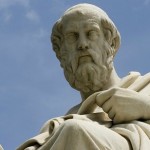We run our website the way we wished the whole internet worked: we provide high quality original content with no ads. We are funded solely by your direct support. Please consider supporting this project.
Podcast: Can Divine Simplicity Apply to a God Who IS Love and IS Relational?
Greg distinguishes practices from beliefs, and warns Christians about the evils of Christmas trees and shaking hands.

Send Questions To:
Dan: @thatdankent
Email: askgregboyd@gmail.com
Twitter: @reKnewOrg
Greg’s new book: Inspired Imperfection
Dan’s new book: Confident Humility
Subscribe:
Category: ReKnew Podcast
Tags: Attributes of God, Simplicity
Related Reading

25 Baby Steps Toward Simplicity
Lutz Koch via Compfight If you’re embarking on a journey of greater simplicity in your life, the task can seem daunting. It can be tempting to give up before you really even get started. Where do you begin? Courtney Carver writes about living a less cluttered and more joyful life on her blog, Be More…

Becoming Unbusy
ZeroOne via Compfight Joshua Becker posted A Helpful Guide to Becoming Unbusy that we thought was wonderful. If you’re finding yourself mindlessly going from one task to the next with no time to take a breath, you might want to check this out. From Joshua’s post: But is the state of busy really improving our…

Is Your Christianity Shaped by Plato or the Bible?
The Timaeus is a work that Plato wrote that addresses the questions: “What is that which always is and has no becoming, and what is that which becomes but never is?” (Tim. 28a)? These questions contain one of the most influential – and, in my opinion, one of the most disastrous – philosophical ideas of…

Podcast: What is the Greatest Philosophical Blunder in History?
Greg goes WAY back to trace an erroneous thought. His investigation brings all the way back to the pre-Socratics and the Ground-of-Being. http://traffic.libsyn.com/askgregboyd/Episode_0249.mp3

Remembering that We are Finite
Here’s a little reminder from Joshua Becker that we live with limited resources in the areas of “Money. Time. Energy. Attention. Physical Space. Relationships. Mental Capacity. Body. Talents. Natural Resources.” Let’s spend these things with wisdom and love. From the blog: This reality of our finiteness is an incredibly important truth. It is one we should intentionally choose to focus on…

Classical Theism’s Unnecessary Paradoxes
The traditional view of God that is embraced by most—what is called “classical theology”—works from the assumption that God’s essential divine nature is atemporal, immutable, and impassible. The Church Fathers fought to articulate and defend the absolute distinction between the Creator and creation and they did this—in a variety of ways—by defining God’s eternal nature…



